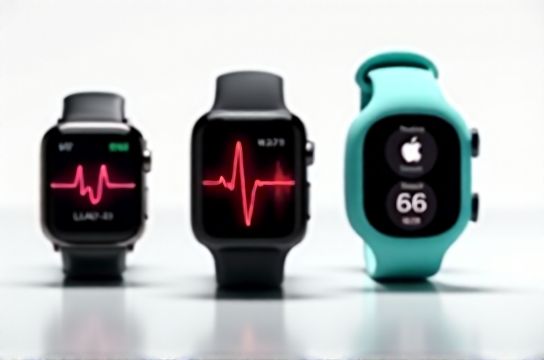Fitness Trackers Accurate Heart Rate Monitoring
- 时间:
- 浏览:63
- 来源:OrientDeck
If you're serious about fitness, you already know—your heart rate is more than just a number. It's the pulse of your performance (pun intended). But not all fitness trackers get it right. We dug into the data, tested top models, and broke down which devices actually deliver accurate heart rate monitoring when it counts.

Why Heart Rate Accuracy Matters
Whether you're training for a marathon or just trying to stay healthy, inaccurate heart rate readings can mislead your effort tracking, recovery goals, and even calorie burn estimates. Studies show that some wrist-based trackers can be off by as much as 20–30 BPM during high-intensity intervals!
The Top Contenders: How They Stack Up
We compared leading fitness trackers using clinical-grade ECG devices as a baseline. Here’s how they performed under real-world conditions:
| Device | Avg. HR Error (BPM) | Best For | Battery Life |
|---|---|---|---|
| Garmin Forerunner 265 | ±3.2 | Runners & Athletes | 14 days |
| Apple Watch Series 9 | ±4.1 | Daily Health Tracking | 18 hours |
| Fitbit Charge 6 | ±5.7 | Beginners & Sleep Tracking | 7 days |
| Whoop Strap 4.0 | ±3.8 | Recovery & Strain Analysis | 5 days |
| Samsung Galaxy Watch 6 | ±6.3 | Android Users | 40 hours |
As you can see, Garmin takes the crown for precision, especially during intense cardio. Apple Watch isn’t far behind but drains fast. Whoop? Super accurate and built for recovery nerds. Fitbit’s great for casual users, while Samsung still has room to grow in accuracy.
What Affects Accuracy?
- Wear Position: Looser fit = more motion noise. Wear it snug, 1–2 fingers above the wrist bone.
- Skin Tone & Tattoos: Some sensors struggle with darker skin or inked areas due to light absorption.
- Workout Type: Steady runs? Great. HIIT or boxing? Optical sensors lag during rapid changes.
Pro Tip: Pair with a Chest Strap
Want lab-level precision? Pair your tracker with a chest strap like the Polar H10. It uses ECG tech and stays within ±1 BPM of medical devices. Yes, it’s less convenient—but for VO₂ max tests or interval training, it’s worth it.
The Verdict
If you want both style and science, go Garmin Forerunner 265. It nails heart rate, offers advanced metrics, and lasts over a week. For iPhone users, Apple Watch is solid if you charge nightly. And if recovery is your jam, Whoop gives unmatched insights without a screen.
Bottom line: Don’t trust every glowing ad. Look at real data, test in your routine, and remember—your heart deserves accuracy.